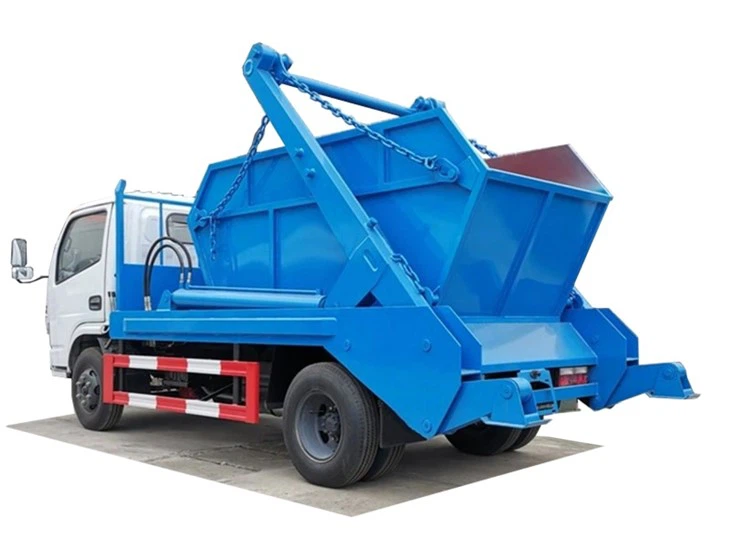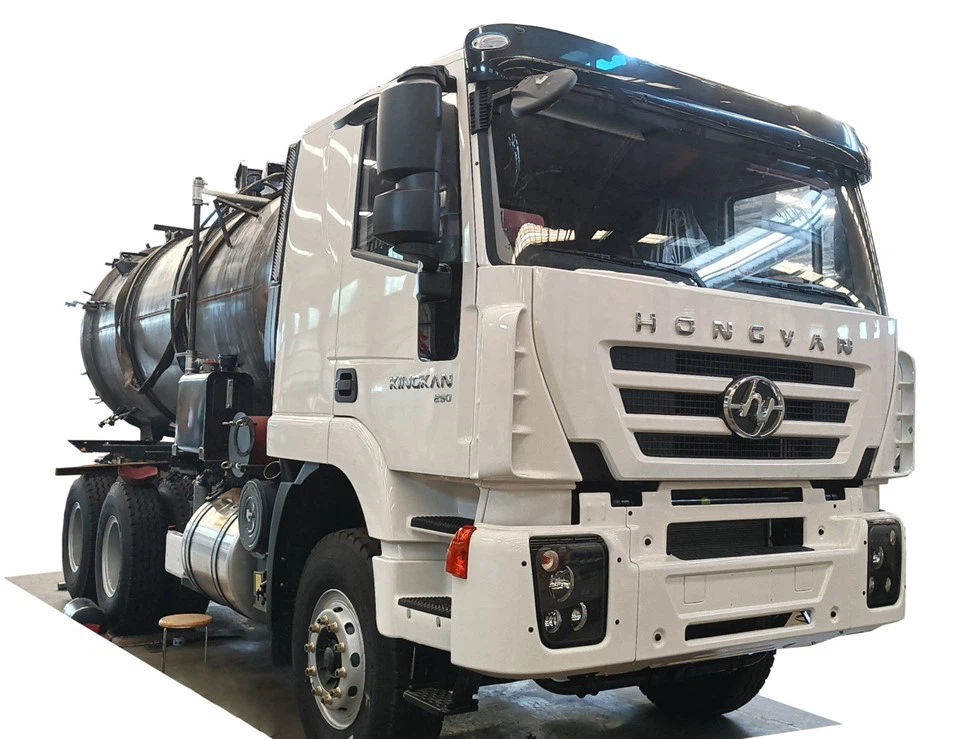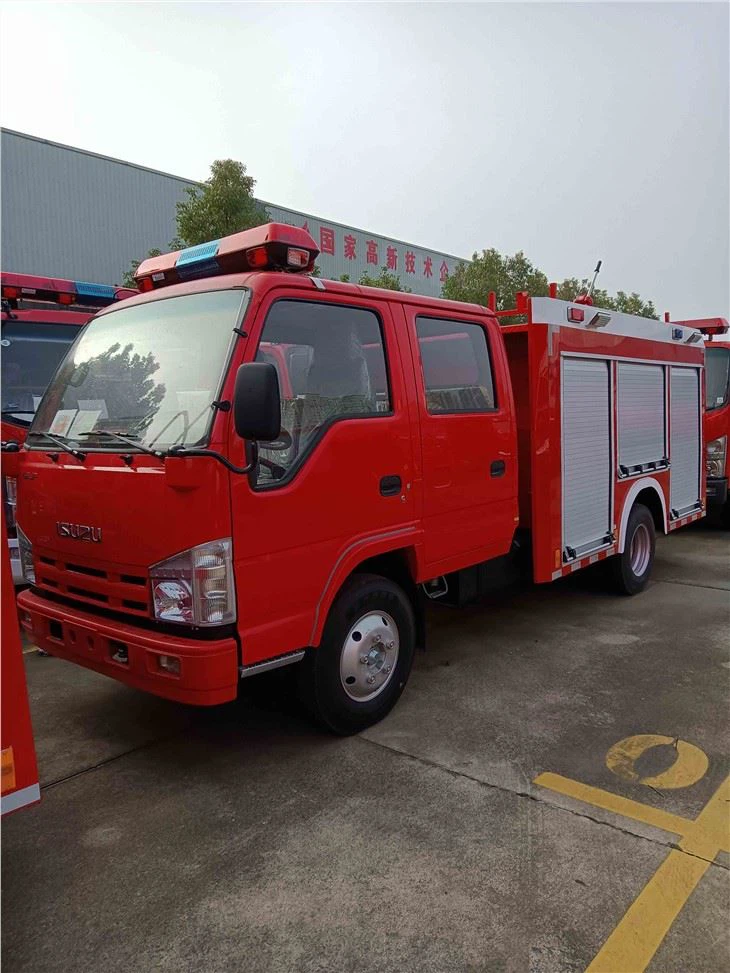Buy Garbage Truck: A Comprehensive Guide for Buyers

In the world of waste management, the right equipment is essential. If you’re considering an investment in a garbage truck, whether for commercial purposes or municipal use, understanding your needs, options, and the buying process is crucial. This guide will cover everything you need to know about buying a garbage truck, helping you make an informed decision that suits your requirements.
Understanding Garbage Trucks
What is a Garbage Truck?
A garbage truck is a vehicle designed for the collection, transportation, and storage of waste materials. There are various types of garbage trucks available, and selecting the right one depends on the specific needs of your operation.
Types of Garbage Trucks
Garbage trucks come in different types, each specializing in specific waste management needs. The main types include:
- Rear Loader: Ideal for residential waste collection, this truck has a compaction mechanism that allows for efficient loading from the rear.
- Front Loader: Commonly used in commercial settings, this truck has forks in the front to lift bins for loading.
- Side Loader: This type allows for one-person collection, as it can pick up bins from the side of the street.
- Roll-off Truck: Used for transporting open-top containers, these trucks are essential for large construction or demolition projects.
Factors to Consider When Buying a Garbage Truck
1. Purpose and Types of Waste
Clarifying the purpose of the garbage truck is paramount. Are you collecting residential waste, commercial waste, or industrial waste? This will determine the type of garbage truck you need.
2. Capacity
Consider the capacity of the garbage truck based on your operational requirements. Trucks come in various sizes, typically ranging from 10 to 30 cubic yards. Selecting a truck that can handle your waste volume efficiently will influence your operations significantly.
3. Fuel Type
Garbage trucks mainly use diesel or compressed natural gas (CNG). Diesel engines are powerful and commonly used, while CNG options are more eco-friendly. Your choice may depend on budget, environmental concerns, and availability of fuel.
4. Brand and Reliability
This is an investment, so choosing a reputable brand with a history of reliability is essential. Brands like Mack, Freightliner, and Peterbilt are known for their durability in the waste management industry.
5. Budget and Financing Options
Determine your budget beforehand. New garbage trucks can range from tens of thousands to several hundred thousand dollars. Consider financing options, such as loans or leases, which can ease the financial burden.
Where to Buy Garbage Trucks
1. Authorized Dealerships
Buying from an authorized dealership offers the benefit of manufacturer warranties and certified service. They often have a range of brand-new trucks as well as used options in good condition.
2. Used Truck Market
If you have budget constraints, consider purchasing a used garbage truck. Websites like eBay, Craigslist, or specialized truck marketplaces can provide various choices. Ensure you check the vehicle’s condition and mileage carefully.

3. Online Auctions and Sales
Many municipalities and companies sell their surplus garbage trucks through online auctions. This can be a great way to find a truck at a lower price, but do your research to ensure transparency and reliability.
4. Auctions and Trade Shows
Attending auctions and trade shows in the waste management industry can yield opportunities to acquire garbage trucks. This setting allows you to inspect the truck before bidding or purchasing.
New vs. Used Garbage Trucks
Benefits of Buying New
- Warranty: New trucks come with warranties that can cover repairs and replacements.
- Latest Technology: New trucks come equipped with the latest features, improving efficiency and safety.
- Customization: You can customize new trucks to your specific needs.
Benefits of Buying Used
- Cost Savings: Used trucks are significantly cheaper than new ones, making them ideal for budget-conscious buyers.
- Immediate Availability: Used trucks can often be available for immediate purchase.
- Lower Depreciation: New trucks depreciate quickly in the first few years; used trucks have already absorbed much of that loss.

Inspection and Test Drive
Importance of Inspection
Inspecting a garbage truck before purchase is crucial. Look for signs of wear and tear, rust, and the overall condition of the truck. It’s advisable to consult an expert or a mechanic who specializes in heavy vehicles.
Test Drive
Always request a test drive. Pay attention to the truck’s handling, steering, brakes, and any unusual sounds. A test drive will give you a clearer understanding of its performance.
Maintenance and Care
Regular Maintenance Tips
- Fluid Checks: Regularly check and change engine oil, brake fluid, and transmission fluid.
- Tire Maintenance: Inspect tire pressure and tread regularly to ensure safety and efficiency.
- Compactor Maintenance: Ensure the compactor operates smoothly by checking hydraulic fluid levels and seals.
Finding a Good Mechanic
Look for mechanics who specialize in heavy-duty vehicles. These professionals will have the necessary experience and tools to maintain a garbage truck efficiently.
Regulatory Considerations
Licensing and Registration
Before operating a garbage truck, ensure it is correctly registered and licensed. Compliance with state and local regulations is essential to avoid fines or legal issues.
Environmental Regulations
Be aware of any environmental regulations that may affect your garbage truck’s emissions or operations, especially if you opt for diesel engines. Compliance not only helps the environment but can also enhance your company’s reputation.
Financing Your Purchase
Types of Financing Available

- Commercial Loans: Traditional financing option offered by banks or financial institutions.
- Leasing: A more flexible option allowing you to use the truck for a predetermined period, with the option to buy at the end.
- Government Grants and Subsidies: Check for local or federal programs offering financial assistance for waste management equipment.
Creating a Payment Plan
Work with your financial institution to create an effective payment plan that suits your budget while keeping your cash flow in check.
FAQ Section
What is the average cost of a garbage truck?
The average cost of a garbage truck varies widely, typically ranging from $30,000 to $300,000, depending on the type and specifications.
How can I finance my garbage truck purchase?
You can finance your garbage truck through commercial loans, leasing options, or government grants. Check with financial institutions for available options that suit your needs.
What should I inspect before buying a used garbage truck?
Inspect for any signs of wear, rust, mechanical issues, and test the compaction and hydraulic systems. A professional mechanic’s assessment is also advisable.
Are there environmentally friendly options available?
Yes, many manufacturers offer garbage trucks that run on compressed natural gas (CNG) or hybrid systems, reducing emissions and environmental impact.
How often should I maintain a garbage truck?
Regular maintenance should be conducted according to the manufacturer’s recommendations, usually every 3,000 to 5,000 miles, or at least once a month for routine checks.
Can I customize a garbage truck?
Yes, when purchasing a new garbage truck, you can often customize features according to your operational needs, including sizing, compaction mechanisms, and additional equipment.
